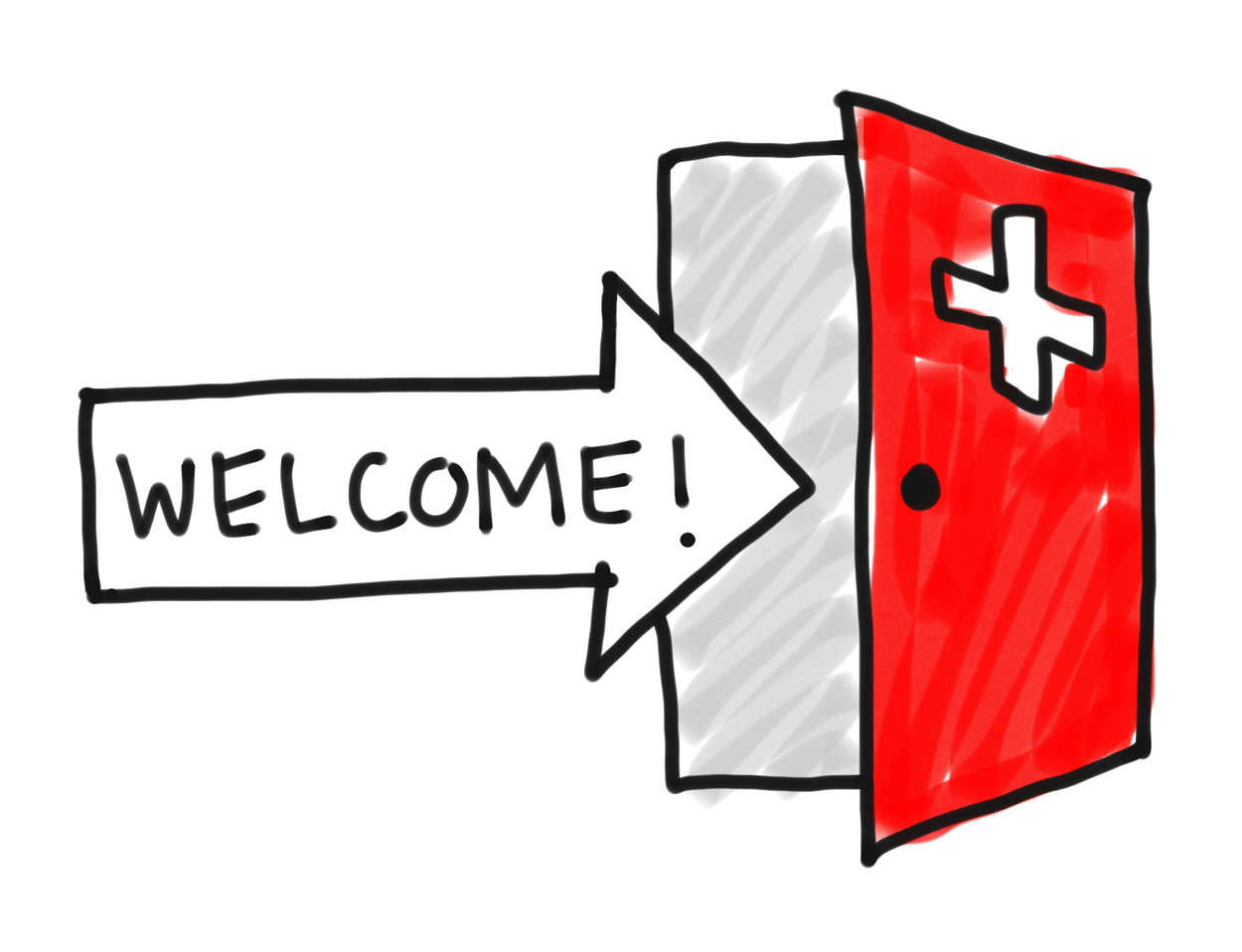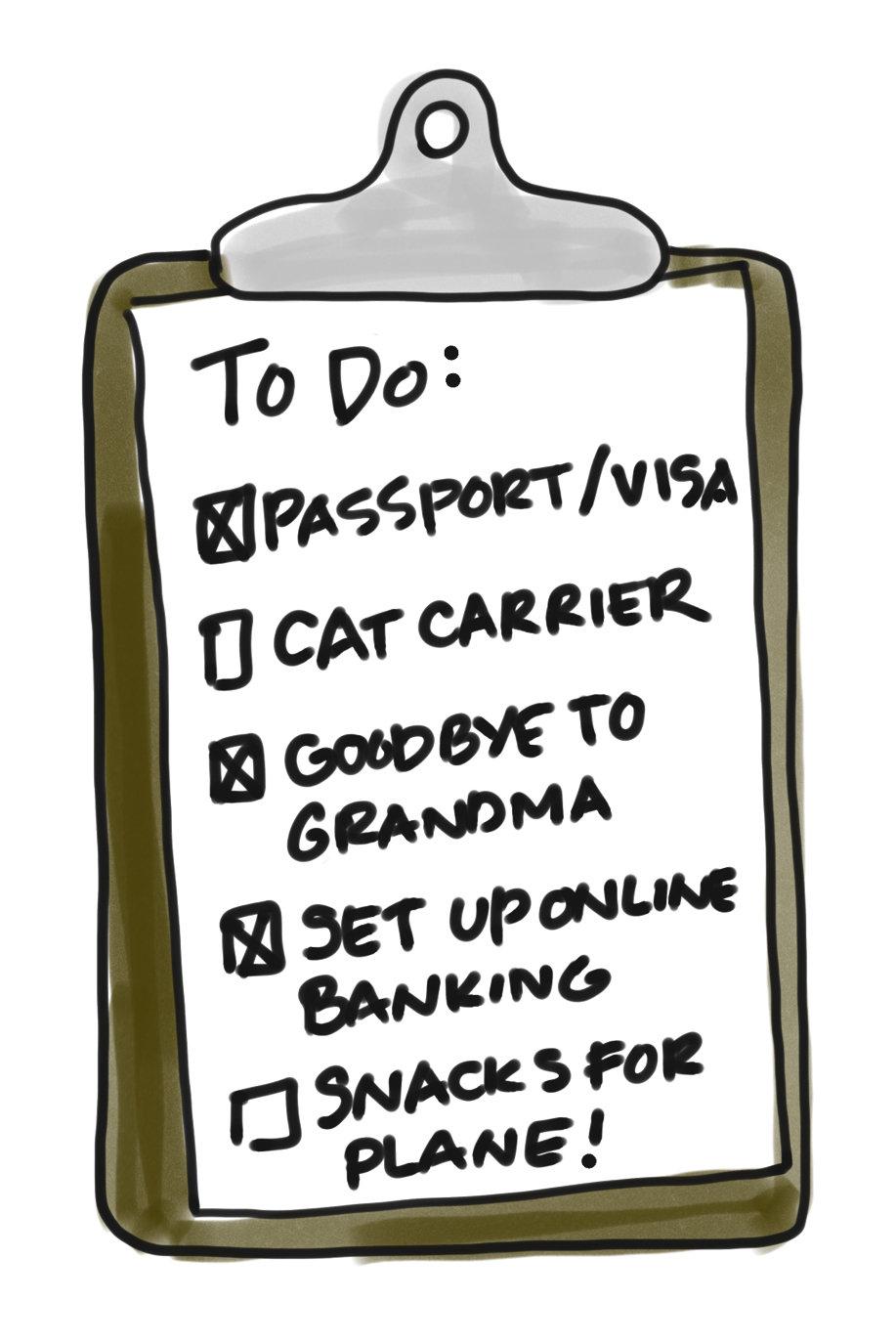Entry, Visa & Residence Permits
Are you enrolled at a Swiss university? That’s wonderful! Now your stay in Switzerland is a firm plan, and you should organise your entry and residence as soon as possible. The procedure differs depending on whether you are from an EU/EFTA country or from a non EU/EFTA country.
You are…
… an EU-28 / EFTA national without gainful employment
Stays up to 90 days within a six-month period do not require authorisation.
For longer stays, you have to register with the competent cantonal authority and apply for a residence permit for non-working persons (they might charge a fee). The registration has to be done 14 days after arrival at the latest. The corresponding residence permit will remain valid for the duration of your studies, or for one year, and you may apply for annual renewals until you have completed your studies, providing the requirements are fulfilled. Don’t forget to apply for an extension of your permit at the latest two weeks before expiry of the authorization.
For the resident permit application, you must at least submit:
- proof of adequate financial resources to cover the cost of living in Switzerland during the course of your study so as to ensure that you will not become dependent on welfare benefits;
- a health insurance policy that includes accident coverage; and
- a confirmation that you have been admitted to a recognised educational institution.
… a non-EU 28 / EFTA national without gainful employment

Before entering Switzerland, you must apply for a visa with the Swiss diplomatic/consular mission in your country of residence. Please note that it takes at least 8 weeks for a visa to be issued (cost: 60 Euro). You cannot study in Switzerland on a tourist visa.
For the visa application, you must at least submit:
- proof of adequate financial resources to cover the cost of living in Switzerland during the course of your study so as to ensure that you will not become dependent on welfare benefits;
- a health insurance policy that includes accident coverage;
- a study plan with information about the purpose of your studies;
- a confirmation that you have been admitted to a recognised or accredited educational institution;
- proof that you fulfil the personal and educational requirements for the intended study;
- a motivation letter, your curriculum vitae and an information sheet detailing your language skills;
- proof that you have appropriate accommodation; and
- a confirmation that you will leave Switzerland at the end of your studies.
Be aware that the Swiss diplomatic/consular mission may request further documentation or other guarantees. The competent Swiss authorities will finally and definitively decide whether the requirements for the planned study stay of more than three months are fulfilled.
For general information concerning entry & residence to Switzerland please consult the website of the State Secretariat for Migration SEM.
More information concerning education can be found in the Instructions AuG, No. 5.1 (this document is only available in German, French and Italian).
… an EU-28 / EFTA national with intended gainful employment next to studying
EU-28 / EFTA nationals and non-EU 28 / EFTA nationals: Do you plan to take up gainful employment during your study? Foreign students may work a maximum of 15 hours per week during their studies, and up to 100 per cent during semester breaks. This must be reported in all cases to the responsible immigration authorities. Students from outside the EU/EFTA region may only start working six months after the beginning of their studies. In these cases, the employer must submit a corresponding request for taking up employment to ensure that an employment check can be carried out. Following this, the immigration authorities can issue a work permit. For the legal framework in this regard, see the instructions within the Foreign Nationals Act FNA, paragraph 5.1.4 (only available in German / French / Italian).
For practical information, consult the working while studying page.
Customs
Moving (household effects)
If you transfer your legal domicile to Switzerland, household effects, pets, vehicles and personal items can be imported duty-free as relocation goods. Items destined for your personal use are considered to be relocation goods. The objects to be imported must have been used by you personally for at least six months, and you must undertake to continue using them personally in Switzerland. Here you find more information on the procedure.
Financial assets
There is no restriction on the amount of liquid funds, i.e. cash, foreign currency and securities, which can be imported into Switzerland, nor do the funds have to be declared. However, the customs authorities are still free to implement measures related to the combat of international crime.



